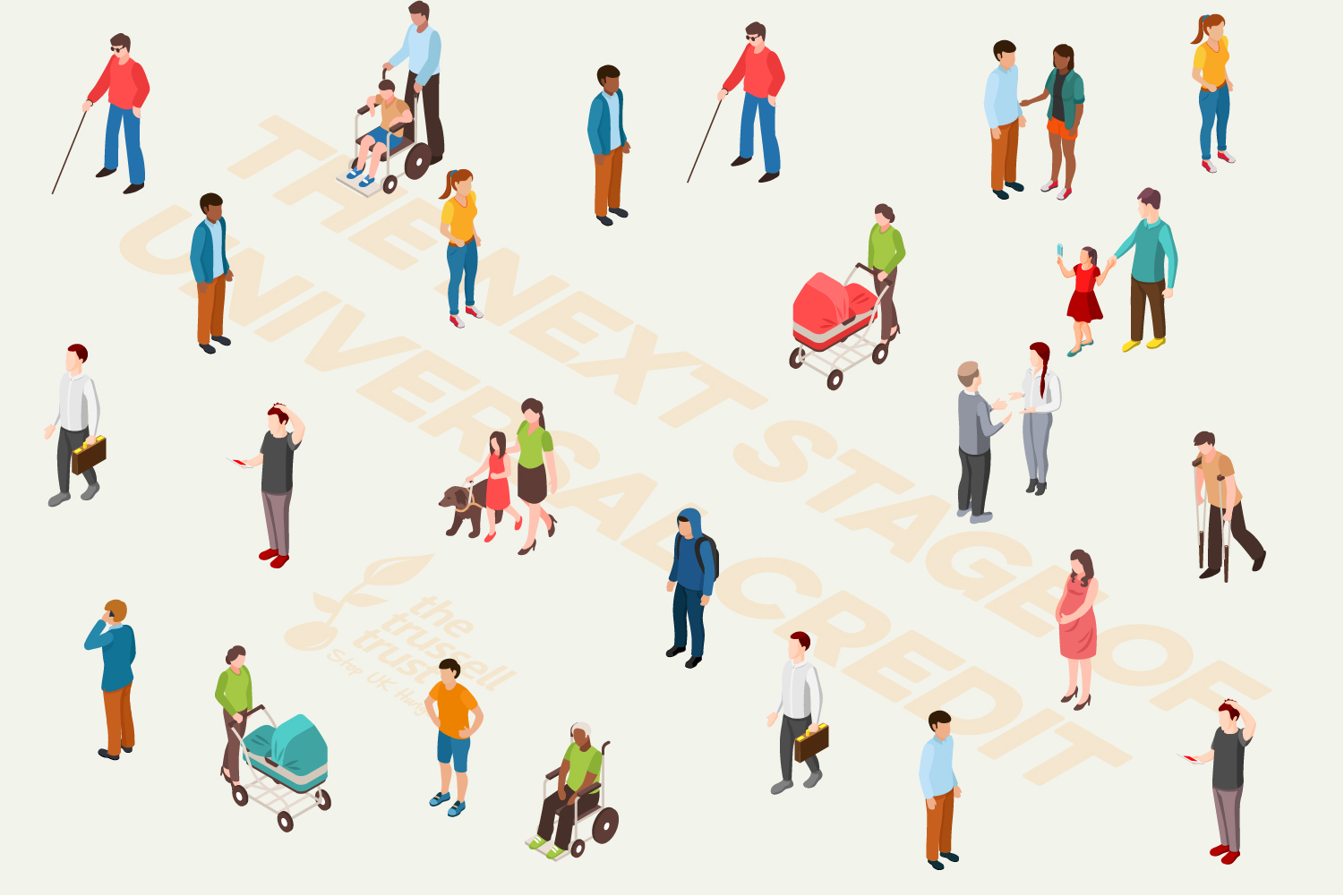 |
A blog post by Garry Lemon Director of Policy, External Affairs & Research |
On Monday afternoon the Government published an update to its plans for the next stage of Universal Credit, ‘managed migration’.
Until now, only people making a new application have gone onto the new benefits system. This next stage will see people already receiving a benefits or tax credits payment under the old system move onto Universal Credit.
At The Trussell Trust, we’ve been watching the development of these plans closely. As a nation we created systems like our national health service, fire service and benefits system because we’re a country that believes in protecting each other – but we’ve seen more and more people needing foodbanks in areas where Universal Credit has been rolled out.
We’ve been sharing evidence gathered by foodbank volunteers to highlight the things that need to change, and asking the Government to learn lessons from the roll out of Universal Credit so far in three ways:
- Take responsibility for moving people onto Universal Credit and make sure no one has a gap in their income if they’re already supported by the old benefit system
- Provide the right support for people on Universal Credit, so everyone is comfortable managing their claim digitally, has support with managing their finances if they need it and is offered payment flexibilities
- Publish a schedule for the next stage of Universal Credit, ensuring there are opportunities to review the process and make changes whilst it is underway if they are needed
So how do Monday’s announcements measure against these?
The updated plans show the Department for Work & Pensions is listening. Easing the rules around when you need to make a claim and when you can backdate late claims are positive steps. Together with the move in last week’s Budget to allow an extra two weeks of DWP payments from July 2020, these measures should help to reduce the risk of people losing out on vital income in the next stage of Universal Credit.
But there is much more to be done.
The government is still pushing the responsibility of this next stage onto claimants. People will need to make a new claim and therefore still risk losing their income. Without attempting to automate any part of the transfer process, the Government cannot claim this next stage of migration to the new system is ‘managed’ at all.
There’s also no information about whether the right support will be in place – this will be vital to ensure people aren’t left without money. The Government has pushed back the timeline for managed migration, to allow a ‘test and learn’ phase next year. This must lead to genuine safeguards and support, and we will continue to make sure the voices of people who have used foodbanks and volunteer in them inform the Government’s plans.
And finally, we must not forget that before the next stage of Universal Credit begins, thousands of people will be making new Universal Credit claims.
None of the changes announced in the last two weeks will be in place for people this winter – most won’t be seen for at least 18 months. Monday’s announcement won’t help people like Ruth, who spoke to the BBC this week about being forced to turn to a foodbank during the wait for a first Universal Credit payment. She needed our benefits system to anchor her from being swept into poverty after she was made redundant, but the gap in income left her struggling to cover the costs of essentials for her young family and she had to use a foodbank.
As a priority, we’re worried about the problems people at foodbanks are experiencing with moving onto Universal Credit. If the wait isn’t reduced for all people making new claims, the only way to stop even more people like Ruth being forced to foodbanks this winter will be to pause all new claims to Universal Credit, until the necessary funding is in place. Reducing the five-week wait won’t fix everything, but it would make a real difference in protecting people from crisis.
Foodbanks cannot continue to pick up the pieces. We have to make sure our benefits system can protect people from hunger. Recent announcements are welcome, but only a start. Much more must still be done to ensure Universal Credit is preventing people from needing a foodbank, not pushing them to one.



